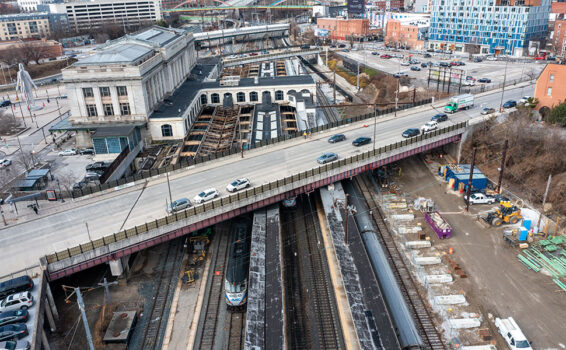Using math to address Baltimore’s transportation challenges
Wake Forest University team earns national award for mathematical modeling

When Baltimore’s Francis Scott Key Bridge collapsed in 2024, the disaster added to the city’s complex transportation challenges.
A Wake Forest University team used mathematics to model solutions to the city’s transportation woes. The three undergraduate students – Tougzhou Liang, Zhanyi Qi and Flora Yi – were awarded one of the two top prizes by the Mathematical Association of America (MAA) in the 2025 Interdisciplinary Contest in Modeling (ICM).
Liang is a junior applied mathematics major, Qi is a junior anthropology and mathematical business major, and Yi is a mathematics major.
This year, 6,364 teams worldwide participated. Each team chose one of three problems to solve. The problems were posted online at midnight on Thursday, and the team had until Monday at midnight to research, model and write a solution. There were only 15 teams worldwide that either won a named award or were designated as “Outstanding.”
The Wake Forest team’s task was “to improve the lives of the city’s residents by recommending ways to improve Baltimore’s transportation network,” using data sets on vehicle counts and other information related to drivers, pedestrians and those using bus and rail systems.
“This is a significant accomplishment,” says Professor of Mathematics Edward Allen, the team’s advisor. “The ICM draws participants from many of the nation’s and world’s top universities.”
The competition was held earlier this semester. Winners were announced this month.



